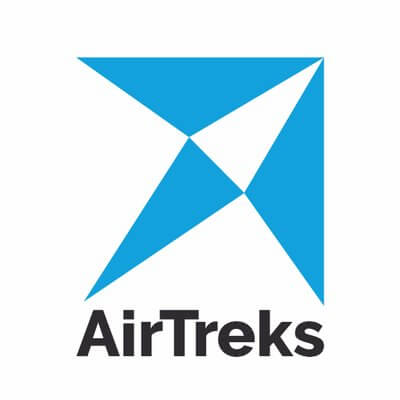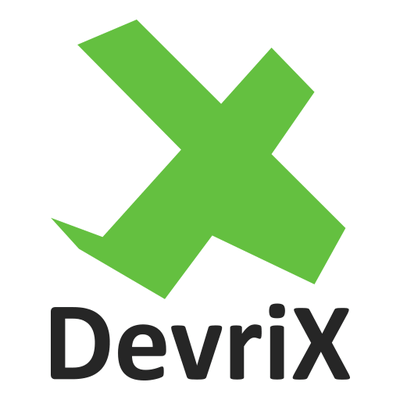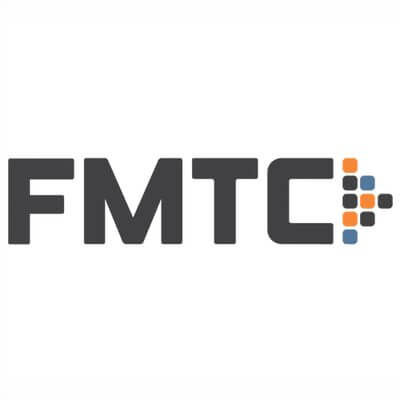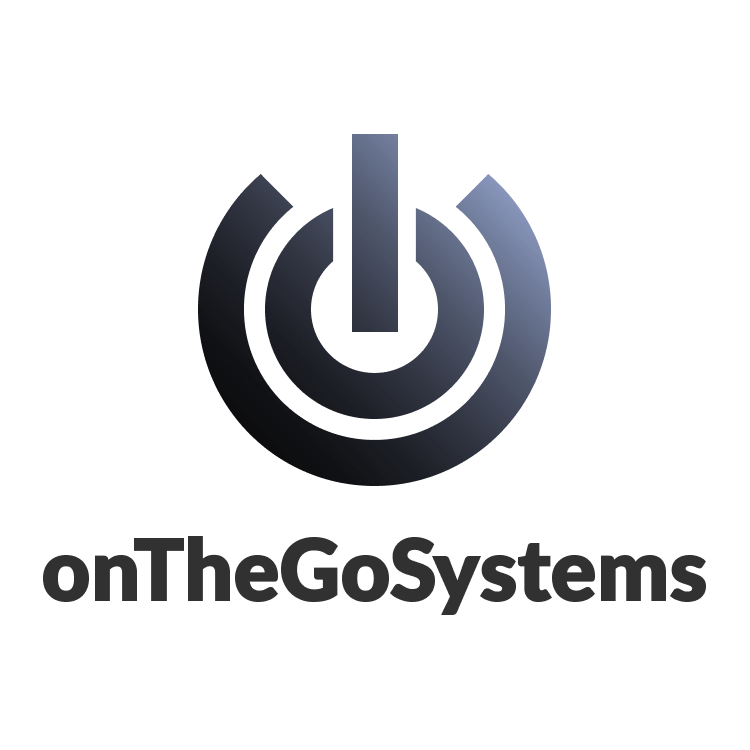What is your time off policy for remote workers?
Aha! currently offers 15 days of paid time off to all teammates in their first year and 20 days in the following years, as well as 10-12 holidays. We also offer one paid volunteer day each year so teammates can help support an organization in their community.
Appirio has a very generous policy when it comes to time off. Employees are given 15 days of vacation annually in their first and second year of employment, and then 18 days annually in their third, fourth, and fifth years of employment. Employees that have been with us over six years are given 20 days of vacation. We also offer 9 paid holidays each calendar year.
We have do not have a policy when it comes to sick time or personal illness. Appirio recognizes that an employee may need to miss work due to emergencies, personal, or immediate family illness, or medical appointments during office hours. We just ask that this does not exceed a reasonable amount.
We have an open time off policy, which translates to take the time off that you need. We ask each person to discuss time off with their team lead and post to a time off P2. That way, it’s transparent when people are available and when they’re offline.
Our PTO/VTO is generous and flexible. Our full-time employees get five VTO days/year (Volunteer Time Off), as well as 15 days PTO (personal time off), and three bereavement days.
When working with a globally remote workforce, it’s important to observe local laws, regulations, and customs. We observe country specific holidays and offer a leave policy anywhere from 15-25 days off per calendar year depending on the location.
To support the work life balance of our workforce, Canonical provides team members ‘Swap days’ which can be used to make up for time lost due to travel requirements.
We do not have a time off limit. However, for it to be worth my while to manage our resources, they have to contribute a minimum amount.
We have a generous leave accrual system and and we also have paid holidays. Coalition Technologies encourages a healthy work-life balance. We recognize that a healthy reward structure is an important part of motivating team members, and part of that structure includes giving people time away from work. Overworking only leads to declines in productivity, so we would rather have a refreshed staff than an overworked one.
DevriX has an open time-off policy that allows people to take time off whenever they choose. This, however, should be coordinated upfront and be in compliance with the status of the projects a team member works on in order to ensure 1st class customer service in any way possible.
Occasionally we force people to take time off if they seem to be burning out, as we don’t want to cross the line when they burn out completely and need a few months off to recover.
Work-life balance is something we take very seriously. We set the expectation from the get-go that no one should be working long hours or during the weekends. Eight hours of effective work five days a week is more than enough to get everything done (we are in the productivity business, after all). We enforce this rule strictly!
In addition to a balanced day-to-day schedule, full time employees have 25 days of mandatory vacation per year and of course all national holidays in their country of residence.
Full-time employees who have successfully passed their three-month trial period are eligible for Doist’s maternity and paternity leave which is 18 weeks of PTO for mothers and 5 weeks of PTO for fathers or adoptive parents.
Vacation, sick and personal leave are lumped together. We take time off seriously. When an employee formally requests time off for an extended period of time (i.e. longer than a long weekend), we make sure there is a plan in place to handle that person’s workload so that he/she is not bothered while out of the office. For smaller breaks, we do not monitor hours and time off, as long as the employee is responsive to clients and maintaining productivity standards. This gives our trusted employees a lot of flexibility to balance work and home without having to feel guilty about it. In return, they are motivated to remain productive.
We have “unlimited time off” for our salary workers. Our rule of thumb is if you’re wondering if you’re taking too much time off, then you are. At the same time, we review employees time-off calendars and make sure they’re actually taking vacation as well. We’ve issued warnings to vacationing employees to not check in or risk having their accounts temporarily disabled; we value our time off and want others to as well.
Each Fog Creek employee gets unlimited sick time and 20 vacation days per year. After being an employee for 3 years, that vacation time bumps up to 25 days.
All employees are offered 18 days a year of paid time off, which is built up over their first year on the job. Over time, their PTO offering is increased. We do cap PTO accumulation so as to encourage vacations. We have the belief that unlimited PTO actually increases the number of days people work.
We have an unlimited paid time off policy. As long as people coordinate any leave they take with their teams to make sure the schedule makes sense and doesn’t leave anyone hanging, then we want people to be able to take the time off they need so that they can be as switched on as possible when they are working.
The biggest problem with “unlimited” though is that it often means people don’t end up taking enough time off, which is counter-intuitive. There’s been some really interesting discussions on this topic in the technology industry lately, and we’ve definitely been discussing internally how we can make our policies more effective too.
Remote working is great because you have the luxury of not using vacation days while traveling if you don’t want to. Our policy is that if you work, great, work from anywhere. If you want to take time off, that is fine too, and we provide vacation days for that.
We focus on the outcomes of work, not on specifics of time off. As mentioned above, we generally have people working too many hours, not too few. So we do encourage time off, and because we have built trust with our team members, we don’t really ‘track’ the time and accept or deny requests based on a set number of days. Our team limits vacation requests during our busy season and because they typically work a lot of extra hours during that time, we are more liberal with time off requests in the slower months. As long as someone coordinates with other team members to ensure their job is ‘covered’ while they are out and the time off doesn’t negatively impact the business (which it rarely does), we are happy to give them time to ‘recharge their batteries’.
You must take time off. That’s about as far as the written policy goes. We don’t have limits; it’s especially easy to get burnt out working solo, so it’s important that the people you hire are mature enough to know — and not be afraid to say — when they need a break. Vacation time is valued here.
We provide unlimited time off, and we highly encourage at least 4 weeks off out of the year. If someone hasn’t taken off in a long time, we ask them to. We trust that every employee will be smart with this, and so far, there has been no issues.
Our employees are all virtual and free to take time off as they want. We work with responsible team members who will be reasonable with this, ie. no leaving for a year-long vacation with 5 minutes notice. As long as the work is covered and we’ve had ample notice, we all understand the perks of the digital nomad lifestyle.
Since our working hours are pretty flexible, we don’t really have a time off policy, but we prefer, that everyone is at their computer between 10am – 3pm, but if they have some errands, they just have to tell us in a Slack channel and that’s ok.
We have a fairly standard PTO policy where people accrue time off for vacation and sick time. We have a high number of part-time workers too, in keeping with our beliefs about workplace flexibility.
Unlimited paid vacation. Many team members travel and work on the go, mixing the two. But we wholeheartedly encourage and support all team members to take real time off and get some downtime, too.
Each person takes as much time off as they need, though they are expected to coordinate with other staff to make sure nothing falls through the cracks in their absence.
We’re a results-driven company, and we have a flexible time-off policy. We technically offer unlimited vacation days because we know the importance of work-life balance to individual success.
As a mom friendly organization we have a generous time off policy that includes paid sick days and paid family leave.
Unlimited. We encourage people to take time to recharge. Over the long term, people are more productive and frankly happier when they have time to themselves without being held to some archaic “accrual” system for PTO. We simply don’t buy into that model. Finally, since we are globally distributed, the concept of only 2 weeks paid vacation is ridiculous to nearly every non-American worker so unlimited vacation days is a win-win for everyone.
Contractors are in charge of their business—they can choose to work one week and not work the next week. We do ask for a commitment two weeks in advance, so we can properly set expectations with our clients.
Members have paid vacations plus public holidays off in the country where they live. The key is communication and making sure the time off is reported well in advance so that the team can be organized.
Everyone gets unlimited time off. If goals are clearly communicated and employees are responsible, we don’t need to babysit with restrictive PTO policies.
We have minimum three-week vacation policy to prevent burnout. We also provide parental leave of up to 12 weeks. Our team is really good at managing their time and so no formal policy is really needed. If we did have one, it would be to not leave your team hanging. You want to go Asia for two weeks, that is fine. Just make sure you are not putting the team in a pinch and remember you’ll have to cover someone else when they want to go to the beach for a month in the summer.
We offer time-off to our employees with 24-hour notice. We’re an incredibly collaborative and connected team, so this is important mostly to give your co-workers notice about when you’ll be available. We also employ a Work From Home model, which gives some flexibility for team members with children or those who might have an errand or doctor’s appointment in the middle of the day. It makes the journey of commuting a little less burdensome.
In addition to time off and vacation, we offer sabbatical and generous paternity/maternity leave. After five years with Parse.ly, team members are offered a 5-week, paid sabbatical. Your sabbatical is meant to be taken “all at once” — a nice, extended break from work that could be used to travel, to explore alternative interests, volunteer for an organization, or simply have the world’s greatest paid staycation. Two weeks of this sabbatical can also be preemptively added to your paid maternity/paternity leave, assuming you will stay at the company long enough to earn said sabbatical.
We have a few set major holidays as company holidays and instead give more PTO days for team members to use as they please. Funnily enough, we started out with even fewer holidays, but many of the team members felt a bit miffed that they had to use PTO days for certain holidays even though we gave more PTO days. Even though the number of days was the same, the perception was not great, so we made some changes.
You can take off whenever you like, but we pay you by the hour. You get one to five weeks of vacation depending on how long you’ve been in the company (three years in the company, three weeks vacation, etc.). There are no working hours and we work from most time zones. I think that the nature of the business has a great impact on what makes sense. For us, we do not need instant replies. We don’t have any customer service or similar. About vacation—one must take off and be 100% off unless there’s something urgent and important to answer.
We’re very loose with time off and people don’t take advantage. We don’t have a formal sick-days policy either—so you can call it unlimited. It’s all about trust.
Pretty basic – any PTO needs to be checked with your team and cleared with your manager. There’s nothing more formal than that in place, as our Agile framework keeps communication really clear on the team. On a small team, even one person’s absence can have an impact, and recognizing this emphasizes the importance of clear communication.
People charge daily. If they do not work, they don’t make money. It is also possible to have a lower daily rate and include 20 days off each year.
20+ vacation days, with unlimited sick days. We also have generous parental leave and benefits.
We don’t track time off but expect people to take roughly 4 weeks vacation. Most of our team doesn’t have set hours so it’s really at their discretion how to approach work.
Employees earn paid time off. Consultant level employees begin to accrue PTO after 6 months of employment at the rate of 80 hours per year, thru year two. Salaried employees earn PTO from the very beginning of their employment.
We have a MANDATORY vacation policy. We realized that an unlimited vacation policy was having the opposite effect – team members weren’t taking the time they needed to rest and recharge. Now we require everyone to take at least 2 weeks per year off, and we offer a $250 stipend for each of those two weeks. Our culture is based on rockstars who spend their days executing, and it’s important to use that we not burn out.
No specific policy. Work when you want, take time off when you need it. Coordinate with your teammates so your time off is not disruptive to everyone’s progress. Use your best judgement on what’s right for you and for the company. Maximize your productivity over time. Avoid burnout. Have a life.
Employees start with two weeks of paid vacation. We also accommodate employees with school age children by letting them take extra unpaid time off over the summers.
First of all, we have a flexible schedule and the only condition for the remote team members is to have at least some overlapping time with the rest of their team.
As for vacation, each employee is entitled to 28 work days off and everyone celebrates the national holidays of the country they’re located in.
We offer unlimited vacation. I know that some companies have changed policies to minimum vacations, required vacations, or something else. As a travel company, our team has been pretty responsible about taking time off. If that ever changed, we may change course as other companies have. I try to set a good example by taking time off myself and by reminding people to take breaks, especially between big projects, to recharge.
Best in the industry. We provide 21 days PTO. We thought through this carefully and we considered doing what Netflix and a few other companies are doing where we provide unlimited time off. But we felt that this creates a weird situation where, because it’s not specified, our team doesn’t take too much time off because they feel like they’re being judged. So we stated a specific PTO number and then told our team that we want them to actually use the full 21 days. That way we’re sure that they’ll take the breaks they need rather than being uncertain about how much is OK. 21 days is the highest we’ve seen in our industry.























































![/Simple [A]](https://remote.co/wp-content/uploads/2018/02/Logo_Eggplant.png?w=100)
















